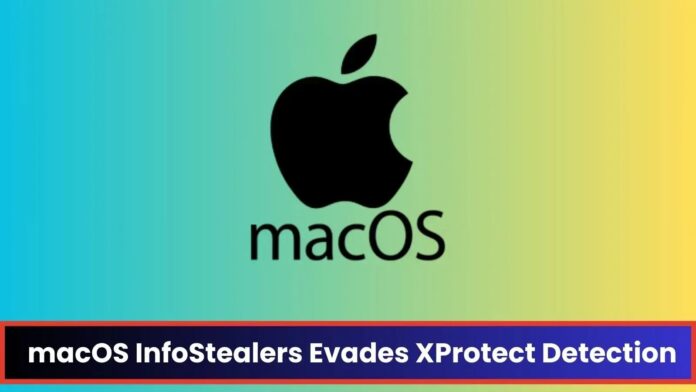[ad_1]
Ever since the beginning of 2023, infostealers targeting macOS have been on the rise, with many threat actors actively targeting Apple devices. As of last year, many variants of Atomic Stealer, macOS meta stealer, RealStealer, and many others were discovered.
However, Apple updated their built-in antivirus “XProtect” signature databases in macOS which denotes that Apple is completely aware of these info stealers and has been taking necessary measures to prevent them. On the other side, threat actors have been constantly evolving and evading known signatures.
Compounding the problem are zero-day vulnerabilities like the MOVEit SQLi, Zimbra XSS, and 300+ such vulnerabilities that get discovered each month. Delays in fixing these vulnerabilities lead to compliance issues, these delay can be minimized with a unique feature on AppTrana that helps you to get “Zero vulnerability report” within 72 hours.
Three Active Infostealers
According to the reports shared with Cyber Security News, Keysteal, Atomic InfoStealer, and CherryPie were three active infostealers that presently evade many static signature detection engines, including XProtect.
KeySteal
This stealer was first discovered in 2021 and has been constantly evolving with evasion techniques. Some of the distributions of this malware were under the binary name “ChatGPT”. Apple added a signature for this malware in 2023 inside XProtect which no longer works.
During the initial stages of this Keysteal, it was distributed with a .pkg format embedded inside the “ReSignTool” macOS utility. It is coded in such a way to steal Keychain information which holds a lot of sensitive password information and establish persistence on the affected device.
The latest version of KeySteal replaces “ReSignTool” with multi-architecture Mach-O binaries under the names “UnixProject” and “ChatGPT“. The malware is written in Objective C and current distribution methods are unclear.
Atomic Infostealer
Apple updated its XProtect Signature databases to detect this malware earlier this month. But it seems like threat actors have up-to-date information about signature detection and have modified the malware with a Go language version shortly after the signature update.
In addition to this, this malware has been seen with completely different development chains, unlike other infostealers, which update only the core version. There have been several variations of this malware currently in the wild attacking macOS devices.
The malware is written in C++ and consists of logic to prevent victims, analysts, or malware sandboxes from running the terminal in parallel with the stealer. Furthermore, it also checks if the malware is being tested inside a virtual machine.
The distribution of this malware was through torrents or gaming-focused social media platforms appearing as a “CrackInstaller” with the .dmg format.
CherryPie
This infostealer malware is also known as Gary Stealer or “JaskaGo” which is a cross-platform malware written in Go with extensive logic for anti-analysis and VM detection. However, the malware developers seem too confident that they left extremely obvious strings that indicate the core intent and purpose of this malware.
Some samples showed traces of using the Wails project to bundle their malicious application. While executing this malware, the application calls the spctl utility with the –master-disable argument for disabling the Gatekeeper and runs with administrative privileges.
Furthermore, a complete report about this malware has been published, providing detailed information about the source code, behavior, intent, and other information.
Indicators of Compromise
KeySteal
- 95d775b68f841f82521d516b67ccd4541b221d17
- f75a06398811bfbcb46bad8ab8600f98df4b38d4
- usa[.]4jrb7xn8rxsn8o4lghk7lx6vnvnvazva[.]com
Atomic InfoStealer
- 1b90ea41611cf41dbfb2b2912958ccca13421364
- 2387336aab3dd21597ad343f7a1dd5aab237f3ae
- 8119336341be98fd340644e039de1b8e39211254
- 973cab796a4ebcfb0f6e884025f6e57c1c98b901
- b30b01d5743b1b9d96b84ef322469c487c6011c5
- df3dec7cddca02e626ab20228f267ff6caf138ae
CherryPie
- 04cbfa61f2cb8daffd0b2fa58fd980b868f0f951
- 09de6c864737a9999c0e39c1391be81420158877
- 6a5b603119bf0679c7ce1007acf7815ff2267c9e
- 72dfb718d90e8316135912023ab933faf522e78a
- 85dd9a80feab6f47ebe08cb3725dea7e3727e58f
- 104[.]243[.]38[.]177
Looking for cost-effective penetration testing services? Try Kelltron’s to assess and evaluate the security posture of digital systems – Free Demo
[ad_2]
Source link
